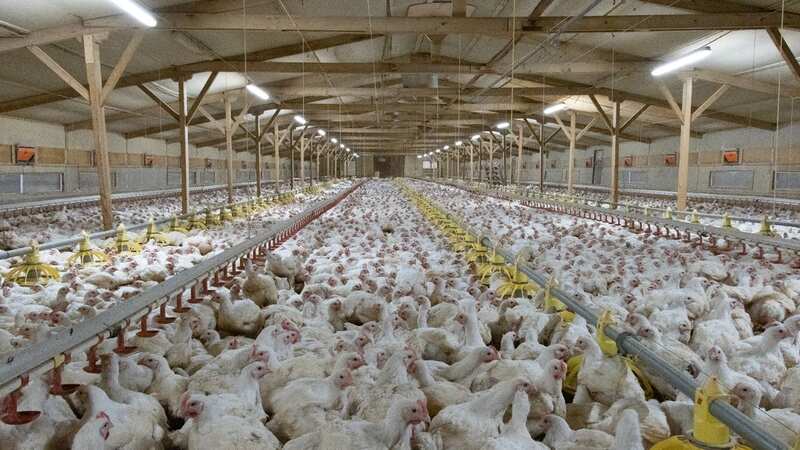'It's time to outlaw cruelty of fast-growth chicken - too many animals suffer'
Earlier this year, I reported from the High Court on a landmark case that had potential to significantly improve the lives of Britain’s cheap supermarket chickens.
During staggeringly short lives – from egg to slaughter in 35 days – 90% of the birds raised annually for meat can gain up to 100g a day. This statistic is the hidden, dark side of our billion chicken-a-year habit. But our insatiable demand, where a bird can be bought for as little as £3, comes at a horrendous cost.
It’s hardly surprising that these fast-growing breeds, dubbed Franken-chickens, have a wide range of health and welfare issues, including heart attacks, lameness, bone deformities, muscle diseases, burns and organ failure. A third also struggle to walk and many suffer horrific injuries and illness, living in a space the size of an A4 sheet of paper.
The Humane League UK brought legal action against DEFRA arguing it had misinterpreted a key section of animal welfare law in relation to fast-growing chickens, but the case was dismissed. The animal welfare group has the go-ahead to appeal in the new year.
Furthermore, a new report by the group found that last year more than 80 million chickens died or were culled in the UK before reaching slaughter weight – a mortality rate of nearly 7%. That compares with 64 million chickens that died prematurely in 2021.
 Furious chimp launches bottle at girl filming him leaving her bleeding at zoo
Furious chimp launches bottle at girl filming him leaving her bleeding at zoo
It also found one in 20 fast-growing chickens are culled or die of illness on farms, whereas slower-growing breeds experience around half the rate of mortality. They argue the fewer mortalities alongside the lower soya requirements of slower-growing birds can contribute to lowering emissions.
Liam Hodgson, the report’s author said: “Current chicken farming practices are cruel to over a billion animals a year in the UK, and pose a huge threat to the health of our environment and population.” If Britain wants to be a world leader in environmental and animal welfare regulations, Frankenchickens must go.
Read more similar news:
Comments:
comments powered by Disqus


































